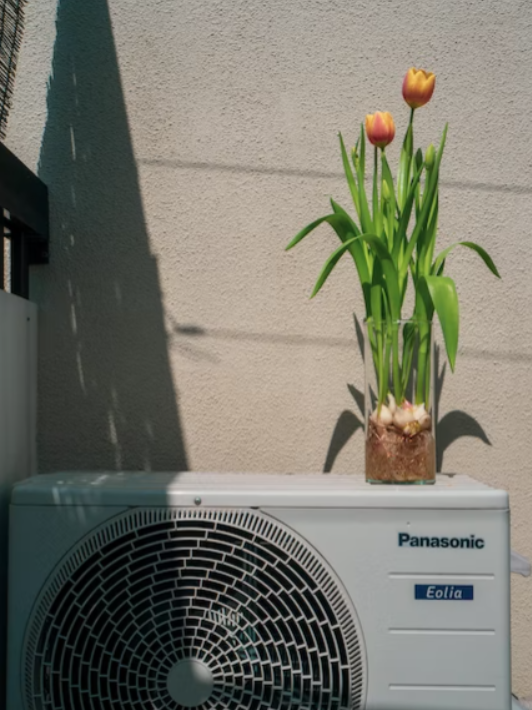Today we are discussing the correct way to winterize an air conditioner. If you use an air conditioner during the summer months, it is important to keep it protected from winter’s harsh weather!
From ice to falling snow, foliage, dampness, and debris, it is time to get your AC ready for winter. We use several air conditioners in our home during the summer months to keep our home cool.
The process of covering the exterior unit and preparing it for the harsh conditions of winter is what’s referred to as winterization. It helps prevent your air conditioner from breaking down when you need it the most, summertime!
I have a window air conditioner and we also have a portable air conditioner. So, our air conditioners are easy to take down and put away for the winter.
But, there are some A/C units that cannot be taken out and this article is for those kinds of air conditioners!

Image Source: Unsplash.com
The Correct Way to Winterize an Air Conditioner
What is the best way to winterize an air conditioner? Read on for an answer to this, alongside some crucial AC winterization tips that could help keep your AC in top shape throughout winter.
AC Winterization Maintenance Checklist
Preventive maintenance is a crucial step in AC winterization. After all, what’s the essence of protecting the unit from debris, moisture, and other elements if it is already showing signs of inefficiency from previous damage by the same elements?
Well, there are a few things you can do to prepare your unit for winter and keep it running efficiently. Depending on the type of AC you have in your home, some of these may include the following:
*Inspect the condenser and clean it if necessary
*Inspect ductwork for any leaks or holes
*Clean the evaporator coil if necessary
*Inspect the air handler for any signs of wear and tear
*Inspect the air filters and clean them or replace them if necessary
*Know when to call an expert
If your HVAC system has been showing signs of damage or has a major problem that you can’t fix, one thing holds true. It is paramount to schedule a service (when you need it) with a professional air conditioning repair and installation expert.
They’ll not only help get your unit back up and running, but experienced HVAC service providers can also guide you on the best way to winterize your specific air conditioning system.
Winterizing the AC Correctly
There are a few things you need to do to properly winterize your AC and keep the HVAC unit working at its best. First, you need to make sure that the unit is turned off and unplugged from the power source.
Next, you need to drain the unit, which means removing the drain plug and draining the water out. Finally, you need to cover the unit with a tarp or other heavy-duty material to protect it from the elements.
Covering the Unit
As much as most modern types of air conditioning systems are built to withstand extreme conditions of snow, rain, and heat, it’s still crucial to cover the unit as winter approaches.
This helps protect against the build-up of falling leaves, branches, pine needles, animal nests, and other debris that may obstruct airflow.
It also helps to make sure that no moisture will be trapped inside the unit as temperatures fluctuate in the cold season.
Well, there are various ways to cover your AC unit and protect it from harsh winter conditions. For instance, you can place a thick sheet of plywood on top of the unit, with bricks at the corners to weigh it down in place.
Alternatively, you could use a DIY-made breathable waterproof wrap that allows the smooth flow of air around the unit. But if your budget allows it, purchasing an AC unit cover could be the best option.
Want an even more sustainable solution? Consider building a dedicated shelter for the unit, making sure there’s free circulation of air around it.
The designs are endless, but a simple shelter or wood awning attached to your house can also do as long as it shades the top of your AC condenser.
Finally, don’t forget to keep a close eye on your air conditioner throughout the chilly season. This might include removing snow, twigs, and other debris that may have fallen around it.
Do you have anything you would like to add to my post about The Correct Way to Winterize an Air Conditioner? If you do, please leave me a comment below! Thank you!